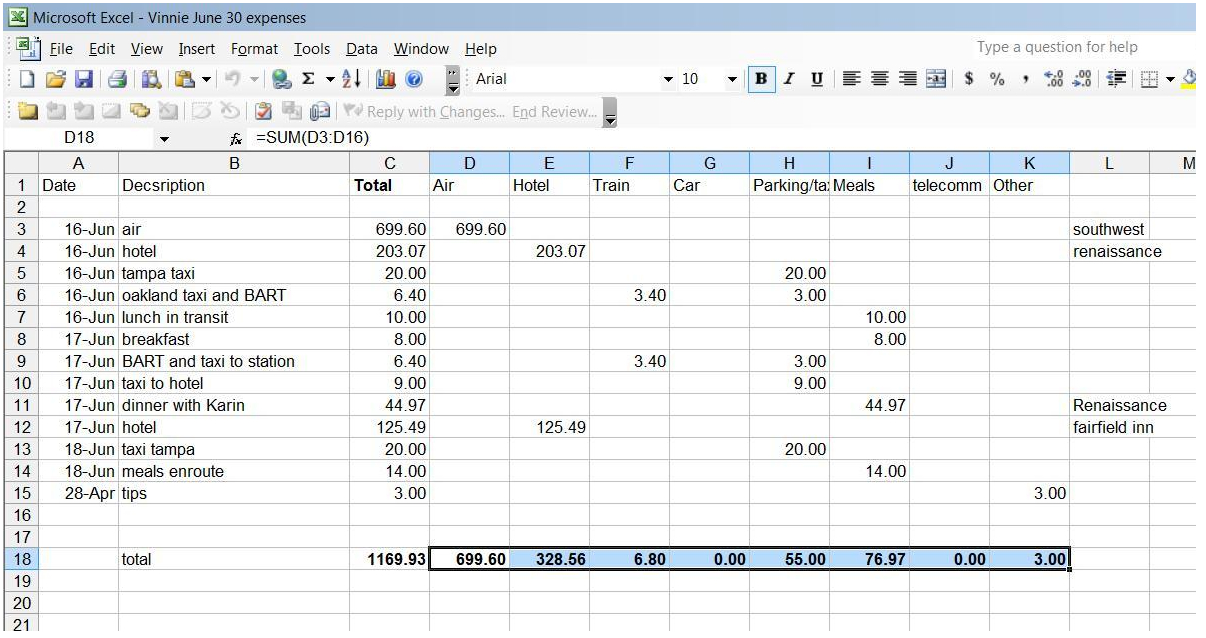Where are the expense management startups and Dirty SaaS?

My Irregular chums have been fiercely debating the need and merit of a sensible expense management solution that combines the best of online purchasing with accounting and the ability to re-bill (where appropriate.) It all started when there was a discussion around Concur and Rearden Commerce as two companies acquiring to flesh out their offerings and take strong positions in the market. That's great for the larger enterprise space. Special praise was heaped on Concur's integration with Amex, especially following the introduction of a new UI. But some of us noted the paucity of solutions in the SMB market or for execs who are 'forced' into arcane workarounds.
Ever quick with a quip tied to a new 'aaS', Anshu Sharma said he wants 'Dirty SaaS' solutions in this area, defined and compared to other forms of 'aas' as:
- *Pure Software* companies don't want to do anything that doesn't have very very high gross margins. (Don't want to get hands dirty with running stuff.)
- *Clean SaaS* companies don't want to do anything that doesn't have high margins. (Don't want to get hands dirty with anything more than running software.)
- * Dirty SaaS *companies are willing to provide the service that customers want. And if that means getting hands dirty with incoming faxes or hiring call center reps in Georgia, so be it. You provide the services customers want, and then you improve profit margins. Not the other way round.
It's a useful set of definitions. Like others, I'd willingly part with $5-10 per expense report if it saved me the aggravation of trying to get this most noxious of jobs done in a compliant manner. Zoli Erdos asks the right question: "The whole point was that most spending is originally an electronic transaction, why should paper enter the chain?" Vinnie Mirchandani then made the bitterly ironic riposte: "Zoli, tell that to accountants, courts, TSA - if everyone accepted electronic docs we would be along way towards paper less...the irony is we print paper receipts, then scan when it should be electronic and on an exception basis print paper!"
We then meandered into a discussion about how some of the airlines, like SouthWest are doing a great job in providing electronic receipts but that certain of the hotel and car rental companies are doing a less than sterling job. In Jeff Nolan's words: "Hotels are fond of taking my email address, why the hell can't they use it for something productive... email me the freakin' pdf receipt instead of sliding it under the door?" Good point. Bob Warfield came back suggesting Concur is looking to lock up hotel companies that will work electronically but it still didn't satisfy the rest of the Irregular gang.
I have a low tech way to track my travel expenses, sort for client billable ones etc . Not too fancy but for the 30 to 40 trips I average a year (600-800 expense receipts a year, some client billable, some not), works fine and at low labor requirement.
a) I use an MS Excel template to record expenses…and in summary they go in to Quickbooks. I fill this template on planes, airports – have the same Excel template on my PDA so can even fill in back of taxis.
b) Receipts that I get electronically – either by email or off websites – I print using Microsoft Office Document Imaging – see second image. I save each as an MDI file and I combine them for each trip. The feature was included as part of my MS Office suite
c) Paper receipts I scan when I get home using my Brother Multi-function and using the Microsoft Office Document Scanning software – which also was included in my MS Office Suite. (See image at the bottom of this post.) It also saves as an MDI file and I combine with those I printed in step b for that trip. Previously I used to fax my expenses on road to an efax account and digitized my expense receipts that way, but they save in a proprietary format and it was not as easy to combine files.
d) I combine each new Excel file into a giant spreadsheet - that accumulate entries for the last several years. That is my search database if I need to find something. I also combine all MDI files by month so I can find an entry in the Excel file and look for receipt there. It has OCR capability and the text search works reasonably well. I had also for a while embedded each receipt MDI into the appropriate Excel file but that did not help searching.
e) One thing I should quit doing is I print the month’s MDI files and put into large envelopes organized by month. Sometimes searching the monthly envelopes is easier than the on-line search, but obviously it is wasteful in paper and ink.
f) If a client needs copies of the expenses, I save that trip’s MDI file as a PDF file so they can read easier.
g) I used to download from Amex, Visa sites and import expenses into Quickbooks, but find keeping detail in Excel actually a lot easier for any analysis. Personal preference. Also entering cash expenses into Quickbooks takes longer, but it allows for reconciling to what is billed easier.
h) On a monthly basis I scan my credit card statements on-line for any recurring charges like Typepad, and print those stubs from their sites and combine with other MDI receipts above
Vinnie is a brave soul. Many of us just don't have the time. Any startups out there ready to end our pain?
Images courtesy of Vinnie Mirchandani
UPDATE: Vinnie refers to his use of Microsoft 'freebies' as part of his discussion.
UPDATE2: Dan Farber has an update from Rearden Commerce that hints at the consumer end of this thorny problem.
